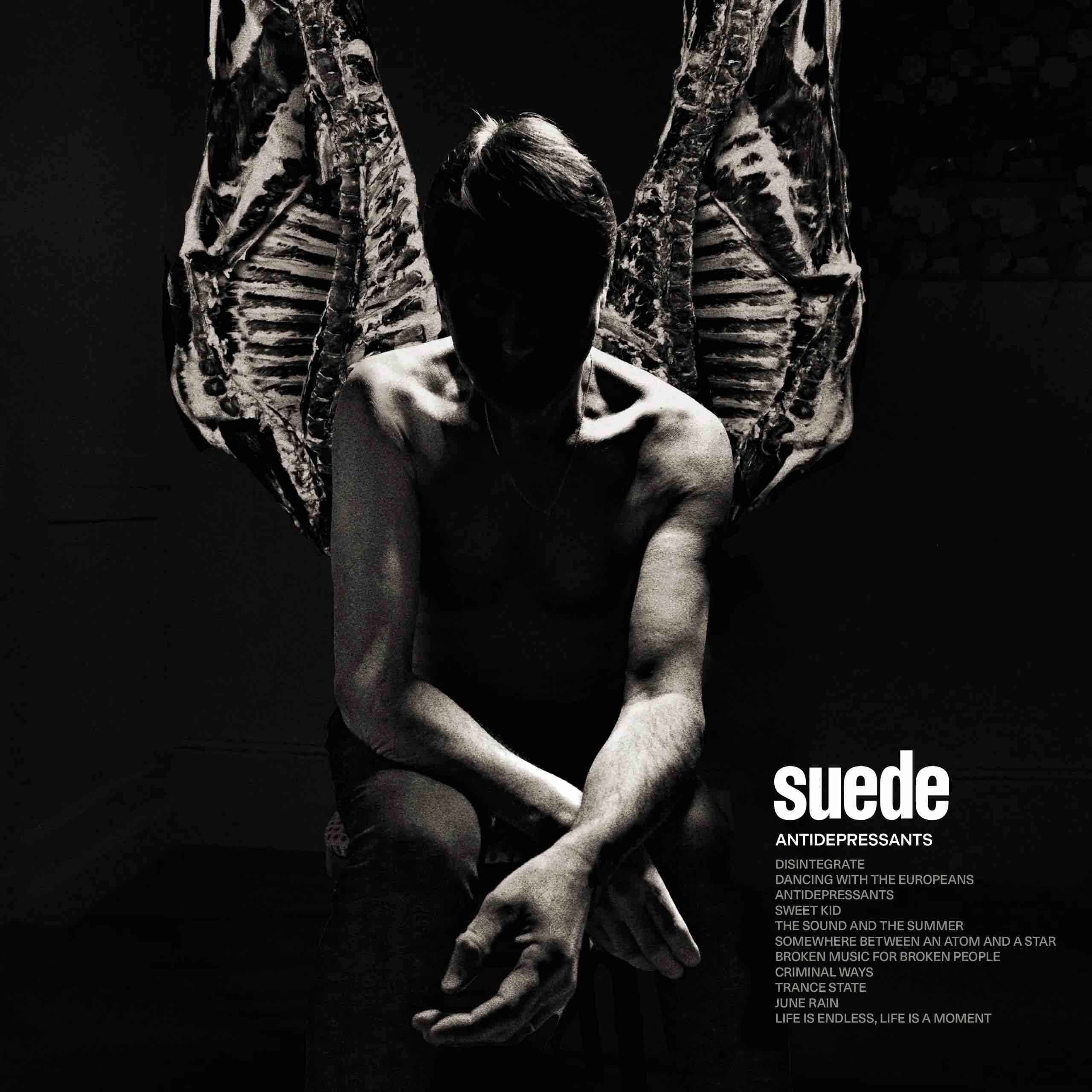Suede
Antidepressants
BMG
Back in the mid-’90s when Britpop was in its heyday, there were two bands rising like cream to the top of that scene. No, not Oasis and Blur, but Pulp and Suede. By far the most interesting, intelligent, and emotionally driven bands of that time, both acts offered a level of depth and sociopolitical commentary above anything else any of their peers were doing. While both bands explored the darkness of reality and life with poetic insight, Suede were always the slightly seedier of the two. Their songs existed late at night, drunkenly slouched against a wall after closing hours, a rolled-up cigarette in mouth, illicit substances running through their veins as the neon glow of London’s night turned their skin into junkie-pale ghosts.
While the scenes that vocalist and main lyricist Brett Anderson conjured up were bleak and beautiful and in no way glorified the lives or lifestyles they portrayed, the hopeless romanticism underpinning the decadence, desperation, and desolation often made it feel that way. For three albums—1993’s self-titled debut, 1994’s Dog Man Star, and 1996’s Coming Up—they were practically perfect, as was Sci-Fi Lullabies, the double-disc collection of B-sides from those records. But then the law of diminishing returns reared its head, and the two albums before the band’s 2003 break-up both had their moments, but lacked the dazzling je ne sais quoi that made those first records so tantalizingly unique.
Of course, nothing is ever forever—not even nothing—and Suede reconvened after seven years of silence. Antidepressants is the fifth album they’ve made since getting back together in 2010, and the second volume of a trilogy that began with 2022’s Autofiction. It’s an absolute dark delight. From the start, the macabre pulse of “Disintegrate” makes it feel like the end of the world is descending, spreading like smoke through lungs about to take their last breath, through a city that’s no longer recognizable. It’s an insistent charge of an opener, but Suede maintain that energy all the way through, even if Anderson’s voice—deeper than it used to be, and so noticeably older—betrays his age.
Both “Dancing with the Europeans” and the title track—which sees the frontman wrestle, through an almost spoken-word post-punk delivery, with the futility of existence in a world that so often forces us to numb ourselves to it—bristle with tension and energy and the same sense of broken wonder that always defined the band’s songs. Elsewhere, the (early) Interpol-esque “The Sound and the Summer” and “Broken Music for Broken People” are almost post-apocalyptic in tone, while “Somewhere Between an Atom and a Star” recalls the band at their most beautifully majestic, as does the glorious, crushingly melancholy of penultimate track “June Rain.”
It would be a perfect way to end the record, except the epic duality of “Life Is Endless, Life Is a Moment” does that instead. Its almost Cure-like guitars and atmosphere elicit a hitherto unheard and unseen darkness that less opens a door to a brave new world than the lid on the coffin of this one. It’s bleak, brutal, brilliant—and one of the best songs they’ve ever written. Where the band go from here—where the final part of this trilogy will take them—is anyone’s guess. But if it’s anything like this, it’s going to be very special, indeed.







